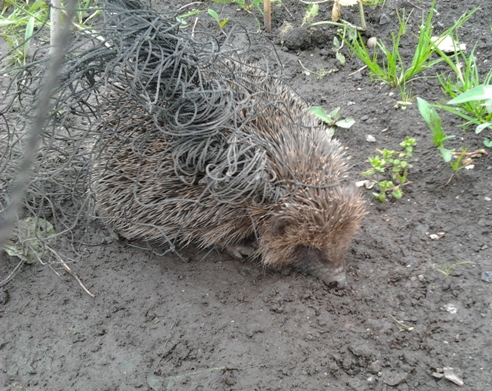Following Rex’s recent scrape with danger see Accident to Rex (thank you to all for the fast intervention), can we ask that you check your gardens to make them hedgehog safe?
This following information has been copied from Hedgehog Street.
1. Ponds & swimming pools
Hedgehogs are good swimmers but they often drown through sheer exhaustion as they are unable to get out of ponds or swimming pools. If you have a garden pond, make sure at least one side slopes gently to allow any hedgehog to get out, or you can form a ramp out of chicken wire or something similar to create an escape route.
With swimming pools, ensure they are either securely covered or that there is an exit ramp for any hedgehog who may fall in.
Make sure that ponds and pools are checked on a daily basis.
2. Bonfires
Any pile of wood or brush is going to be an attractive prospect for a hedgehog looking for somewhere dry and cosy to make a nest for sleeping or for hibernation. Check any piles of wood or garden refuse for a nesting hedgehog before burning.
3. Netting
Due to their spines and their tendency to curl up, hedgehogs are very prone to getting tangled up in netting. This can lead to the netting acting like a snare causing damage, sometimes fatal, to the hedgehog. Make sure any unused netting (including sports netting) is stored off the ground and that pea netting is high enough from the ground to allow hedgehogs to pass under safely
4. Chemicals
Slug pellets are the most well-known chemical hazard to hedgehogs. However, other pesticides are also thought to affect hedgehogs; herbicides can lead to a decrease in the number of earthworms in lawns resulting in less food for hedgehogs and other insecticides can reduce the amount of other invertebrates available for the hedgehogs to eat.
Wood preservers can also be harmful to hedgehogs as they will often lick freshly treated fences. Try to use a water-based environmentally friendly treatment instead.


One comment on “Hedgehog Safe Gardens”
Liza
June 19, 2018 at 07:36Thanks for all the useful information